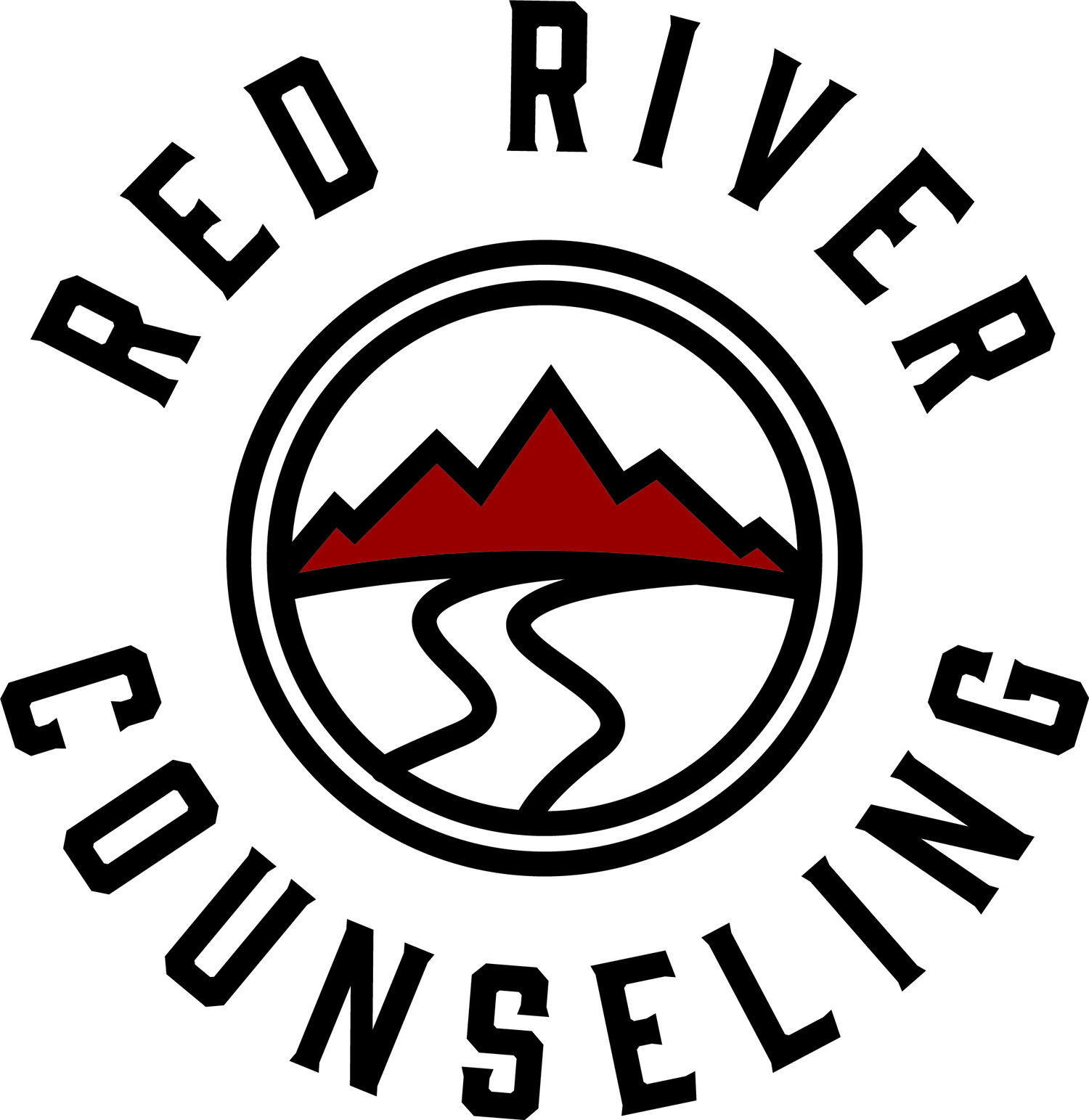Your Role in Race Relations
/The Karpman Triangle, developed by Stephen Karpman in the 60’s, is a tool used by counselors to map out conflict between people. In this model there are three roles a person or group of people could play; victim, rescuer, and oppressor (or offendor). The unhealthier the relationship or group, the more pronounced these roles become.
I often use this with families that have a member struggling with addiction. For instance, if the father is an alcoholic, the family usually comes to counseling because there’s been some breaking point. Let’s say the wife finally had enough of covering up for him with family, friends, and employers because he’s too hungover or drunk to show up. Or maybe they come because his alcoholism has become so out of control that the kids have been scared or hurt by his actions, and the wife feels forced to stop protecting him in order to protect their kids.
In a family like this, the mother and children are being victimized by the alcoholic’s oppressive self-centeredness. But, when they confront him, he might crumble in shame, lamenting how unloved he feels and how his family always attacks him. Now, his wife and children feel forced to choose between standing their ground and feeling like the bad guy, or consoling his shame and telling him it’s not really that bad.
Victim. Rescuer. Oppressor.
This family dances between these three roles. The wife is victimized, but when she confronts the offendor, the husband plays the victim. The kids just want things to be okay, so they rescue their self-pitying dad by excusing his behavior, even though they feel immense pain. The husband, who has offended and oppressed his family for years, hates to feel bad, so he blames his wife for nagging him…if she would just shut up about it, he wouldn’t have to drink... The dance goes on and on until the members of the family take ownership. Victims own their pain. Offenders own the pain they cause others. Rescuers own their boundaries.
Your Role in Race Relations
As I watch friends and family take sides and draw lines on social media, as I see government officials blame some and rescue others, as our country gets buried deeper into a conflict we’ve never fully faced…the dance between these three roles is becoming more severe.
When a black man cries out for help, that he can’t breathe, begging for his mama, as he is victimized by a group of police officers, people choose what role they’ll play. When we watch someone being oppressed, we might feel sadness, guilt, helplessness, apathy, or a host of other emotions. What do we do with these complex emotions? How do we play the victim? How do we go about trying to rescue? What do we do with feelings of guilt?
Victim. Rescuer. Oppressor…..or Ownership.
Victim
For many of the white folks I know, they feel compelled to get out of those feelings of guilt by moving from oppressor to victim. Rather than taking ownership for their part, which could range from explicit racist views to implicit biases to negligence and silence, or even for the guilt of their society, they play the victim….All Lives Matter. They begin to perceive themselves as being oppressed by those making them feel ‘white guilt’. They conflate conspiracies of liberal funding behind the protests, which they believe to be against their conservative ways of life. They cry out that the confederate flag is about southern pride, heritage not hate, and feel victimized by those telling them to take it down.
Or they blame the victim, making him out to be the real offender. Candace Owens did this with elegance as she decried how George Floyd wasn’t a ‘martyr or a hero, not an amazing human being..’ She shifted the blame from the oppressors to the oppressed. She rescued the oppressors by playing the victim. I’ve seen more ‘shares’ of her statements by white folks than of any other statement. Why? Because it alleviates uncomfortable feelings and allows offendors to feel like victims.
Rescuer
For other white folks, they try to rid themselves of uncomfortable emotions by rescuing someone. I’ve seen countless people give personal apologies to black people they don’t know on social media. They’re trying to get rid of these complex emotions by handing them off to someone else by ‘rescuing’ black strangers with their words of apology. In reality, they’re just handing over their pain, piling on to the pain already there.
They try to take the focus off their own uncomfortable feelings by ‘helping’ someone else. Rather than face their or their cultures role as an oppressor or offender, they avoid it by focusing their energy on someone or something else. They spend countless hours debating the legitimacy of systemic injustice, racial bias, historical accuracies, original intents, and so on. Many times, they try to rescue our country from its history of oppression by writing a new history, such as with the ‘lost cause’ narrative. I’ve seen many of my Christian friends try to rescue themselves from uncomfortable feelings and necessary changes by claiming that ‘all we need is the gospel’. Who can argue with that? But underneath this statement, at this time, in this way, is an avoidance of the actual problem at hand. They can shift the attention from the one being victimized to a different group who plays the victim.
In addition, they may say just enough to try and alleviate their own part in the problem, maybe a statement by a business, denomination, church, or seminary, but without any real substance of action. They don’t even try to rescue the one offended, but only their institution. The words of a rescuer are often hollow and their actions are often self-serving.
Oppressor/Offender
“Well, he shouldn’t have gotten in trouble with the police in the first place...” He should have…. He shouldn’t have…. The oppressor seeks to blame the victim. As this becomes more severe, it’s known as gaslighting. If you’ve been reading this article and your primary reaction is, ‘Well, what about all the rioters?’, ‘What about the other side?’ then this is your role. Do all people play into these roles, yes. But I’m not writing to everyone. Rather than seeing the pain underneath the protests, an oppressor will find anything possible to put the blame on someone else, such as the pain protests cause the econcomy. On the other hand, we’ve all seen the white rioters who have been stopped from destroying buildings by black protestors. These rioters blame everyone while neglecting to look at themselves, only furthuring the pain of those actually oppressed.
Oppressors often find incredible and elegant excuses about the accidental nature of the harm done, ‘They didn’t mean to…’, ‘They’re really trying to help’. Or, they claim it’s just one bad apple, while neglecting to finish the old adage that claims one bad apple spoils the bunch. No one likes to be the bad guy, so the oppressor becomes the victim, pushing the victim to become either a rescuer or an offender. All while avoiding their own uncomfortable feelings, as well as the pain they’ve caused others.
What’s the Solution?
Ownership.
If you watch what all is going on and have uncomfortable feelings, or you feel guilty for your past support of racist beliefs, words, and actions, or your past silence…own your feelings. Don’t put it off on someone else. In the 12-step community, when you can’t make amends for harm done, you work out what is referred to as a ‘living amends’, meaning that you stop doing that harm and intentionally seek to make it right in your life with others.
Attempt to look at our collective history and your personal history square in the eyes. Feel the guilt, shame, sadness, despair, and then work out amends in your real life. Don’t rescue our history from its truth, otherwise the pain and oppression will continue to fester and grow. Don’t just say what is necessary on social media to help you not feel bad, but find the words that you can act on. The pain we don’t transform, we transmit. Do something constructive with your pain or painful feelings. Own your part. Own your feelings. Own your history. Own up to what you can and can’t do. Do what you can. Say what you can. Love Justice. Seek Mercy. Walk Humbly.
If you want more information about what to do with your pain, be it the pain of guilt, the pain of being oppressed, or the pain of feeling helpless, I recommend Jemar Tisby’s model for genuine racial reconciliation. You can find his A.R.C model here.





